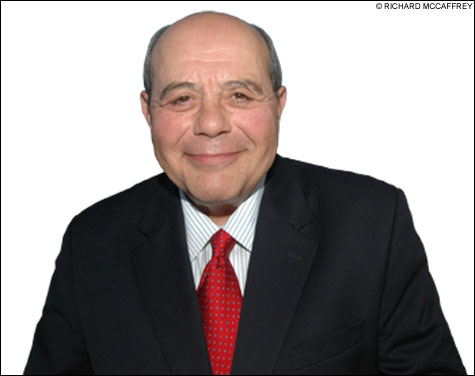
|
Vincent Albert Cianci — called Buddy by friends and foes — is back.
Cianci served almost 20 years as mayor of Providence and ran for governor in 1980. Cianci was among the defendants included in a 30-count indictment in 2001, and was ultimately convicted of a single count of racketeering conspiracy. He was sentenced to serve 64 months. He was released in May.
I have known Buddy for more than 30 years. I worked for Cianci from 1975-80 as the city’s director of community development, and from 2001-02 as the city’s director of housing code enforcement. And I consider him a friend.
I interviewed Cianci at his office in the plush 903 Residences condominium complex behind Providence Place. Upon his release, he worked in marketing and sales in a job provided by the complex owner, Joe Paolino, scion of a real estate investment family, a former mayor himself, and one-time critic of Cianci. He resumes his second career as a talk show host on September 20 from 10 am to 2 pm on WPRO-630 AM.
Buddy answered my many questions in a forthright, open, and often somber manner. Humor flashed, usually in the form of one-liners aimed at his critics: “My return should help the Journal increase its revenue, which — in my absence — I understand, went into decline.” All in all, however, Cianci was philosophical.
Throughout the plunder dome trials you maintained your innocence. What were your thoughts the day you went off to prison? What were the early days there like?
It was one sad day in my life. It was Christmas time when I left, early December, the 5th. I remember leaving the Biltmore Hotel [where he lived at the time], and it was snowing, Christmas carols were playing in the city, it was festive, children were skating in the ice rink across from the hotel, a rink which I had a lot to do with establishing. The whole scene was surreal — the snow, the singing, the festive atmosphere. I thought of my family — Christmas was always my favorite time — and I was going to prison. It was surreal.
My friend Bob Lovell drove me to New Jersey, we stayed in a hotel overnight in Trenton, and I reported the next day to the prison. We waited at an Army guard station and then I was picked up and taken to the prison and Bob left. I was taken to a holding room where I stayed for about eight to 10 days. I didn’t know what to expect. I was given a physical exam, strip-searched, the usual stuff you hear about. Naturally, I was full with apprehension about how adjustment would go, what would happen. Around December 16, as near as I can remember, I was shackled with about 10 to 12 other guys and remember waiting for a bus to take us to a permanent place, and it was “cold, cold, cold” waiting for the bus, and we were then taken to new quarters in a building that housed about 400 men, most in dormitory-style living arrangements. All my personal clothes and property were taken, including my “squirrel” [toupee], which I never wore again in prison and now have decided not to wear.

How did the adjustment to prison go?
I got on OK. I was housed in a unit for 12 inmates, most of whom were minority guys. Two minority guys knew of me — they were from Providence, one had a picture of me with his kid at a Little League game in Providence, it was tacked up in his locker. They helped me to make the adjustment. In the early weeks I went to prison, 60 Minutes and the A&E channel ran specials on me, so most of the guys learned about me. One of the things I learned in prison is that you are respected if others know you pleaded not guilty but still was convicted, because they consider that you’re a “stand-up guy.” Most of the inmates pleaded guilty to get lesser sentences.
I was not housed in “country club” prison or “camp.” I was in a fenced-in-plus prison, holding over 4000 inmates, with iron gates and cells and concertina wire on top of the walls to prevent escape, and dogs for sniffing out drugs among inmates. There were serious drug dealers housed in there, some doing some long prison terms, a few organized crime guys who were connected with New York crime families and the like, and a lot of “illegal entries.” There were some white-collar criminals, but most of these guys were not from educated backgrounds. I did not have a hard time adjusting to the guards and other inmates. You learn quickly how to adapt, do what you have to do. I was held for the most part in “highest regard” in written reports. They [guards and administrators] judged me over time as a “role model” for getting along, for neatness, for cleanliness and performance of my jobs [according to written reports this interviewer had access to]. Over time, everybody participates in some way in evaluating how you handle yourself. The key to getting along is to show respect toward others and their activities. You learn quickly that respect and honor toward others is a must. Things happen in prison — you can easily get into trouble if you’re not careful, you get caught up in them. You don’t involve yourself in things that are not your business.